After Coronado gave up on the Seven Cities of Whatever, he penned a missive to the King summarizing his experiences and discoveries. Ask yourself what tone and intent are suggested by his choice of words nearly six centuries later.
The full letter, a classroom edit, and printable versions can be found here.
HOLY CATHOLIC CAESARIAN MAJESTY: On April 20 of this year I wrote to Your Majesty from this province of Tiguex, in reply to a letter from Your Majesty dated in Madrid, June 11 a year ago. I gave a detailed account of this expedition, which the viceroy of New Spain ordered me to undertake in Your Majesty’s name…
“Caesarian” here presumably means “like Caesar” rather than referring to the circumstances of his delivery at birth. Still, it does open up some humorous alternatives – “Your Royal Breechness,” “Divine Preemie-inence,” etc.
It’s also nice for those of us reading 500 years later that he essentially begins with “previously, on Coronado’s Journey…” I wonder if that was a formal norm or an acknowledgement that the King was a busy man and might have no idea who Coronado was or why he should remember him.
I described it all, and the sort of force I have, as Your Majesty had ordered me to relate in my letters; and stated that while I was engaged in the conquest and pacification of the natives of this province…
You know, because that’s what people do to kill time – conquer and pacify…
…some Indians who were natives of other provinces beyond these had told me that in their country there were much larger villages and better houses than those of the natives of this country, and that they had lords who ruled them, who were served with dishes of gold, and other very magnificent things; and although, as I wrote Your Majesty, I did not believe it before I had set eyes on it… {but it seemed} important that it should be investigated for Your Majesty’s service, I determined to go and see it with the men I have here…
Already this sounds like a desperate effort to cover his own behind, doesn’t it? “OK, so, here’s what happened and I totally didn’t believe them but then I was like, I totes owe it to the KING to check it out ANYWAY and so, like… no WAY this was my fault!”
After nine days’ march I reached some plains, so vast that I did not find their limit anywhere that I went, although I traveled over them for more than 300 leagues. And I found such a quantity of cows in these, of the kind that I wrote Your Majesty about, which they have in this country, that it is impossible to number them, for while I was journeying through these plains, until I returned to where I first found them, there was not a day that I lost sight of them.
Tatanka!
And after seventeen days’ march I came to a settlement of Indians who are called Querechos, who travel around with these cows, who do not plant, and who eat the raw flesh and drink the blood of the cows they kill, and they tan the skins of the cows, with which all the people of this country dress themselves here. They have little field tents made of the hides of the cows, tanned and greased, very well made, in which they live while they travel around near the cows, moving with these. They have dogs which they load, which carry their tents and poles and belongings. These people have the best figures of any that I have seen in the Indies…
That’s about as succinct a description as you could ask of life on the Great Plains – flat as far as you can see, nomadic natives, living in tipis and utilizing just about every part of the buffalo they hunted. The use of dog travois was common on the Plains as well.
The last part about their figures was not nearly so awkwardly suggestive as some of you wondered just now. These were different times, and Coronado is trying to be descriptive, and thorough. I kinda wonder if it also suggests a tendency to see the Querechos as interesting creatures in nature rather than real live individuals.
I traveled five days more as the guides wished to lead me, until I reached some plains, with no more landmarks than as if we had been swallowed up in the sea, where they strayed about, because there was not a stone, nor a bit of rising ground, nor a tree, nor a shrub, nor anything to go by. There is much very fine pasture land, with good grass.
And while we were lost in these plains, some horsemen who went off to hunt cows fell in with some Indians who also were out hunting, who are enemies of those that I had seen in the last settlement, and of another sort of people who are called Teyas; they have their bodies and faces all painted, are a large people like the others, of a very good build; they eat the raw flesh just like the Querechos, and live and travel round with the cows in the same way as these. I obtained from these an account of the country where the guides were taking me, which was not like what they had told me, because these made out that the houses there were not built of stones, with stories, as my guides had described it, but of straw and skins, and a small supply of corn there…
Texans with painted bodies and faces? Must have been on their way to a college football game. This was the first sign of trouble with their journey to “Quivira” which couldn’t be ignored to accommodate avarice.
It seemed to me best, in order to see if there was anything there of service to Your Majesty, to go forward with only 30 horsemen until I should be able to see the country, so as to give Your Majesty a true account of what was to be found in it… And with only the 30 horsemen whom I took for my escort, I traveled forty-two days after I left the force, living all this while solely on the flesh of the bulls and cows which we killed, at the cost of several of our horses… and going many days without water, and cooking the food with cow dung, because there is not any kind of wood in all these plains, away from the gullies and rivers, which are very few.
I love the subtle reminder that Coronado was not, of course, doing any of this for himself, but for the King. It also says something about the size of the group with which he normally traveled that going on with 30 guys was really stripping it down to a skeleton crew.
And perhaps I’m reading too much into what is, after all, a modern translation of a centuries-old letter in another language, but I sense his frustration leaking through already – “there was not a stone, nor a bit of rising ground, nor a tree…” and “cooking… with cow dung, because THERE ARE NO #@$%ING TREES OR TWIGS OR PICTURES OF TREES SO $%&@ IT WE’LL JUST USE POO!! THAT’S RIGHT – WE’RE COOKING WITH POO!!”
It was the Lord’s pleasure that, after having journeyed across these deserts seventy-seven days, I arrived at the province they call Quivira, to which the guides were conducting me, and where they had described to me houses of stone, with many stories; and not only are they not of stone, but of straw, but the people in them are as barbarous as all those whom I have seen and passed before this; they do not have cloaks, nor cotton of which to make these, but use the skins of the cattle they kill, which they tan, because they are settled among these on a very large river…
The people here are large. I had several Indians measured, and found that they were 10 palms in height; the women are well proportioned and their features are more like Moorish women than Indians. The natives here gave me a piece of copper which a chief Indian wore hung around his neck; I sent it to the viceroy of New Spain, because I have not seen any other metal in these parts except this and some little copper bells which I sent him, and a bit of metal which looks like gold. I do not know where this came from…
His disappointment is palpable, but it’s not the full-blown disgust and frustration we’re going to see further down. The sad desperation of sending a lone copper necklace to the viceroy almost breaks my heart for Coronado. The years, the hope, and the depravations endured… for a copper necklace of unknown origin.
The province of Quivira is 950 leagues from Mexico. Where I reached it, it is in the fortieth degree. The country itself is the best I have ever seen for producing all the products of Spain, for besides the land itself being very fat and black and being very well watered by the rivulets and springs and rivers, I found prunes like those of Spain and nuts and very good sweet grapes and mulberries.
“So, your Majesty, the trip was pretty much a bust in terms of riches and gold and such. But OMG if you could have seen the PRUNES! So, um… can you maybe, like, not be too mad about the gold? Because… prunes?”
Here’s my favorite part.
I have treated the natives of this province, and all the others whom I found wherever I went, as well as was possible, agreeably to what Your Majesty had commanded, and they have received no harm in any way from me or from those who went in my company…
“…as well as was possible…”
What a wonderfully cautious bit of self-justification.
And what I am sure of is that there is not any gold nor any other metal in all that country, and the other things of which they had told me are nothing but little villages, and in many of these they do not plant anything and do not have any houses except of skins and sticks, and they wander around with the cows; so that the account they gave me was false, because they wanted to persuade me to go there with the whole force, believing that as the way was through such uninhabited deserts, and from the lack of water, they would get us where we and our horses would die of hunger…
I can’t help but see his pen jabbing at his paper, Coronado muttering to himself as he scribbles his frustration within the confines of acceptability to one’s sovereign…
“One thing IS for SURE, however… There’s. No. $#%&ing. Gold. Or. Metal. Or. Any. Thing. Else. $%#*. !@*%&%. #%&*TW#@&%@#$!!@# In. This. #$&@Y$@. Land.”
It’s here we see the first written expression of perhaps the single greatest conflict between white guys and the red guys over the next four centuries.
“They don’t plant anything… and they wander around with the cows…”
To the average European, nature is there to be subdued. Reworked. Made into your b*tch.
To the average Amerindian on the Great Plains, nature is there to be understood. Utilized. Perhaps a bit revered.
They were not starry-eyed environmentalists as some would have them portrayed, but they certainly asked for different things out of life than the typical white guy. The first bewildered, annoyed record of this realization comes from the European perspective comes from Coronado, right here.
It didn’t bode well for future white-guy / red-guy relations.
RELATED POST: Coronado (Why Don’t You Come To Your Senses?)
RELATED POST: Turkin’ Back And Forth

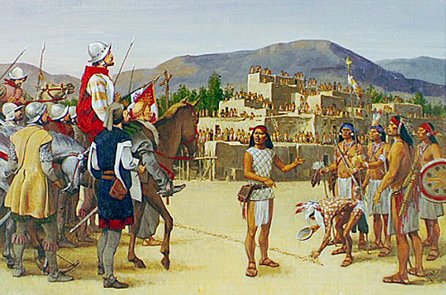 I
I 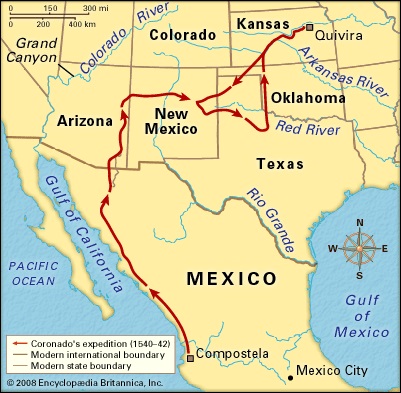 This worked for a ridiculously long time, despite being a rather obvious ploy. Unfortunately, it relied heavily on the cooperation of strangers. Eventually, one of the tribes they encountered – the Teyas, an intriguing name later given to a future state whose name escapes me at the moment – started letting Coronado know that they had no idea what this Turk lad was talking about, and that he wasn’t even translating properly.
This worked for a ridiculously long time, despite being a rather obvious ploy. Unfortunately, it relied heavily on the cooperation of strangers. Eventually, one of the tribes they encountered – the Teyas, an intriguing name later given to a future state whose name escapes me at the moment – started letting Coronado know that they had no idea what this Turk lad was talking about, and that he wasn’t even translating properly. 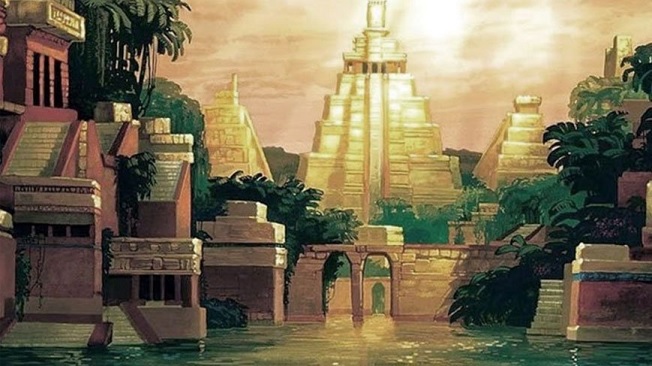 Coronado ordered that the Turk be garroted – the thing you see in action movies when they strangle someone with wire. To be fair, he had fibbed rather extensively and wasted months of their time, not to mention substantial resources. His sacrifice had not been in vain, at least – he’d led Coronado and crew far, far from his own people and their homes.
Coronado ordered that the Turk be garroted – the thing you see in action movies when they strangle someone with wire. To be fair, he had fibbed rather extensively and wasted months of their time, not to mention substantial resources. His sacrifice had not been in vain, at least – he’d led Coronado and crew far, far from his own people and their homes.  History, by definition, is written down. This is not an knock against archeology, anthropology, oral histories, or any other efforts to unravel the past – it’s just a definition.
History, by definition, is written down. This is not an knock against archeology, anthropology, oral histories, or any other efforts to unravel the past – it’s just a definition.  The first Land Run (1889) is certainly one of the more colorful events in our collective past, and far less depressing than most – at least if you don’t look too closely. This is when the first ‘Oklahoma’ lands were legally opened to white settlement, so claiming it as our “day of birth” has a certain logic to it. Then again, that would mean coming to peace with the suggestion it’s not really history until white people show up.
The first Land Run (1889) is certainly one of the more colorful events in our collective past, and far less depressing than most – at least if you don’t look too closely. This is when the first ‘Oklahoma’ lands were legally opened to white settlement, so claiming it as our “day of birth” has a certain logic to it. Then again, that would mean coming to peace with the suggestion it’s not really history until white people show up. So I choose to be literal and insist that the History of Oklahoma began in 1540 with the arrival of a conquistador by the name of Francisco Vásquez de Coronado. He led an expedition which wandered through part of what is now far-western Oklahoma. Significantly, for our purposes, he and some of those with him left written records of their thoughts and experiences as they traveled – the first recorded “history” of the area.
So I choose to be literal and insist that the History of Oklahoma began in 1540 with the arrival of a conquistador by the name of Francisco Vásquez de Coronado. He led an expedition which wandered through part of what is now far-western Oklahoma. Significantly, for our purposes, he and some of those with him left written records of their thoughts and experiences as they traveled – the first recorded “history” of the area.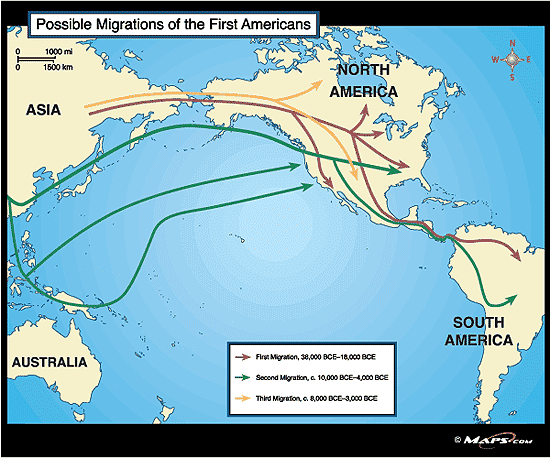
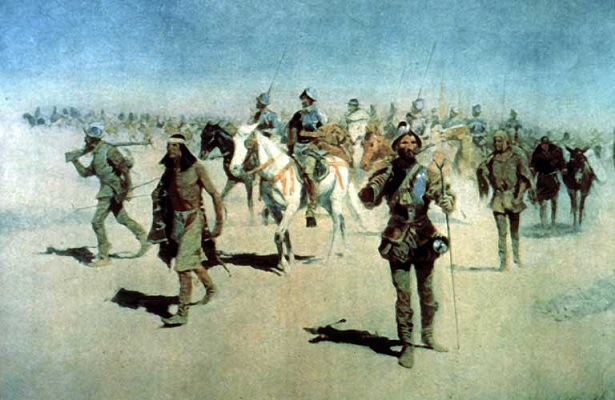
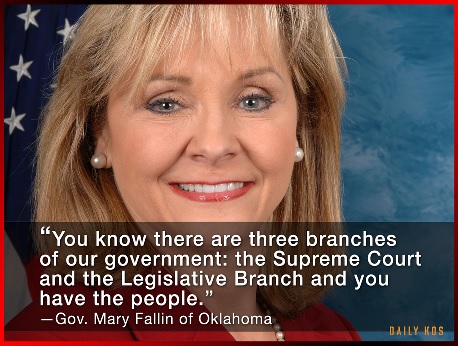
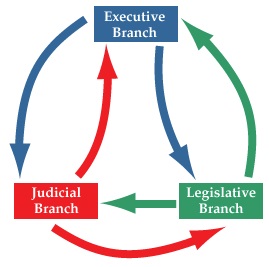 The rest of Article V is about the logistics of elections, vetoing or signing legislation, and creating a few other commissions and positions necessary to keep things running. Nothing too exciting.
The rest of Article V is about the logistics of elections, vetoing or signing legislation, and creating a few other commissions and positions necessary to keep things running. Nothing too exciting. 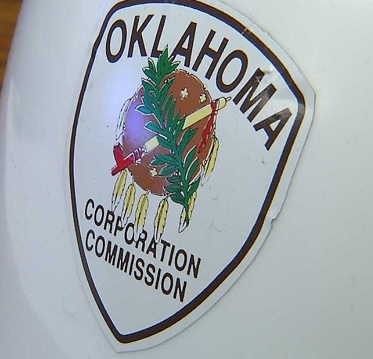 Article IX goes on to establish the state Corporation Commission, which regulates industries determined to be ‘public services’ – utilities, transportation, oil & gas, telephone, etc. When we study the Populist Party of the late 19th Century and I ask about lingering impacts, this one counts as a really good answer.
Article IX goes on to establish the state Corporation Commission, which regulates industries determined to be ‘public services’ – utilities, transportation, oil & gas, telephone, etc. When we study the Populist Party of the late 19th Century and I ask about lingering impacts, this one counts as a really good answer. 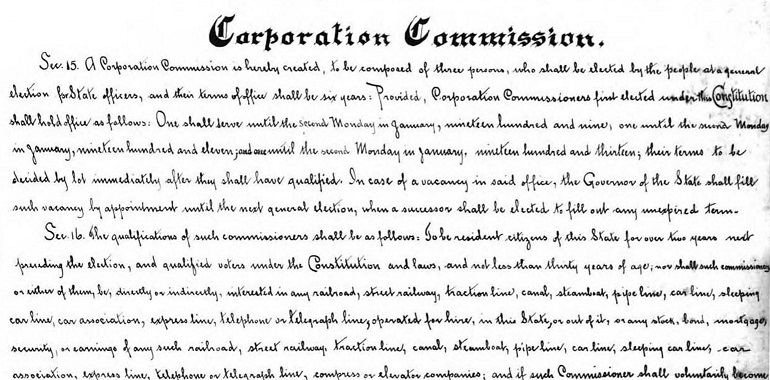

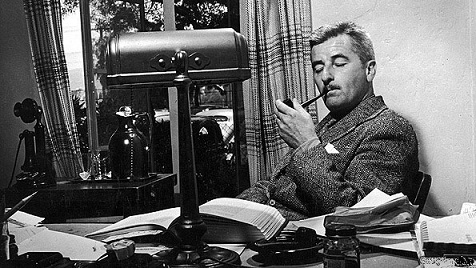
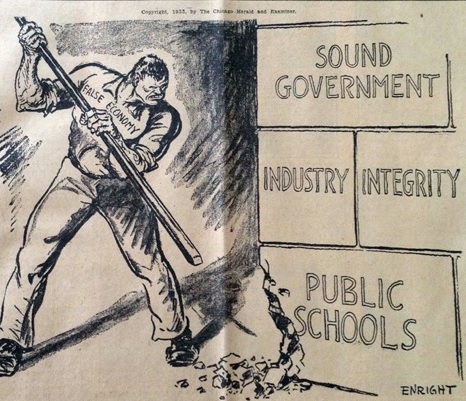 This mindset was a precursor to the Progressive Era and its Amendments – the 16th, 17th, 18th, and 19th. Basically, there was a concern that government at all levels was too far removed from ‘the people.’ Various reforms gave voters more direct input on who was elected and what changes could be made – recalls, referendums, etc.
This mindset was a precursor to the Progressive Era and its Amendments – the 16th, 17th, 18th, and 19th. Basically, there was a concern that government at all levels was too far removed from ‘the people.’ Various reforms gave voters more direct input on who was elected and what changes could be made – recalls, referendums, etc.  That’s important in a decade during which we repeatedly introduce, debate, and occasionally pass state laws which are undeniably doomed once challenged in the courts. We spend hundreds of thousands of dollars fighting for the right to return to the 19th century.
That’s important in a decade during which we repeatedly introduce, debate, and occasionally pass state laws which are undeniably doomed once challenged in the courts. We spend hundreds of thousands of dollars fighting for the right to return to the 19th century. 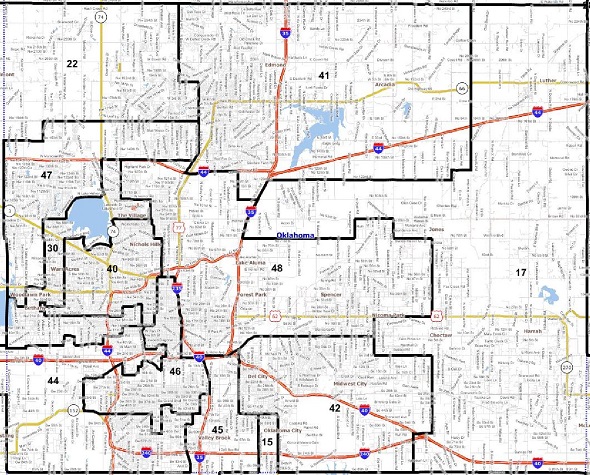
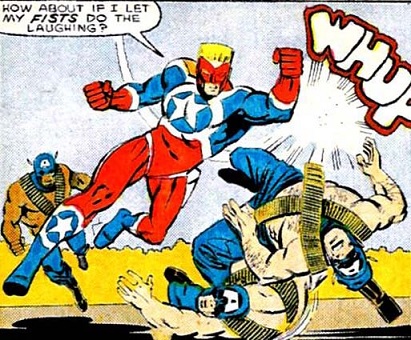 This has caused untold grief since oil prices crashed. Due to previously passed legislation, the tax cuts for top earners across the state keep waterfalling at preplanned intervals, despite little evidence they’re producing all of that ‘prosperity’ used to justify them in the first place. When anyone suggests perhaps we could slow down on that a bit until we’re no longer feeding on the weak and the young, our legislature cries with hands upraised – “What can we do?! It’s… it’s… AGAINST THE RULES!”
This has caused untold grief since oil prices crashed. Due to previously passed legislation, the tax cuts for top earners across the state keep waterfalling at preplanned intervals, despite little evidence they’re producing all of that ‘prosperity’ used to justify them in the first place. When anyone suggests perhaps we could slow down on that a bit until we’re no longer feeding on the weak and the young, our legislature cries with hands upraised – “What can we do?! It’s… it’s… AGAINST THE RULES!” 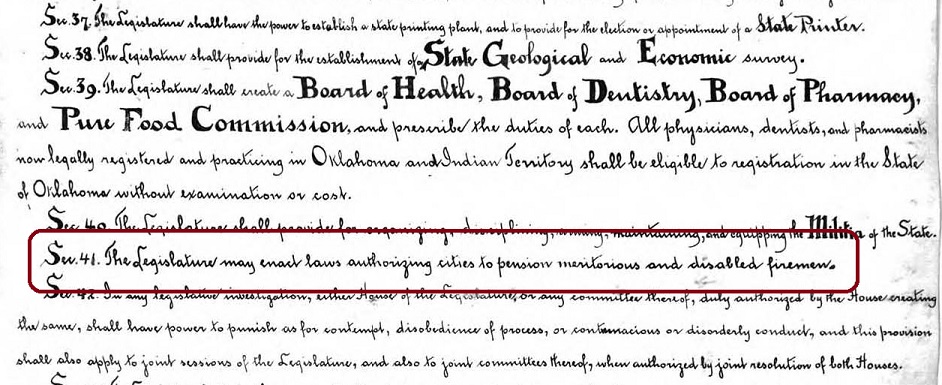
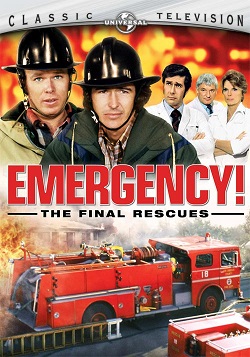 We’d like to tweak the A-F School District Shaming System by juggling a few phrases, and ohyeahbytheway – THIS IS AN EMERGENCY AND IMMEDIATELY NECESSARY FOR THE PRESERVATION OF THE PUBLIC PEACE, HEALTH, AND SAFETY.
We’d like to tweak the A-F School District Shaming System by juggling a few phrases, and ohyeahbytheway – THIS IS AN EMERGENCY AND IMMEDIATELY NECESSARY FOR THE PRESERVATION OF THE PUBLIC PEACE, HEALTH, AND SAFETY.